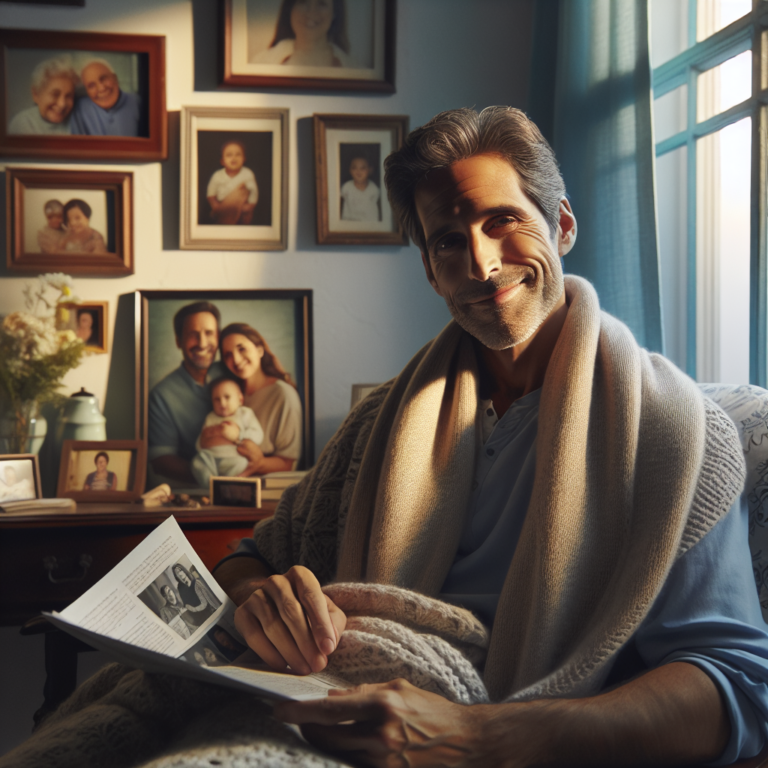25 Years to a Cancer-Free Life: My Journey to Health and Healing

A Personal Journey Through Pancreatic Cancer: Early Detection Saves Lives
Pancreatic cancer is a formidable adversary that has impacted many families, including mine. After losing several loved ones, including my brother, I made it my mission to combat this disease. Through annual screenings and a commitment to early detection, I sought to break the cycle and find a way to fight back against this relentless illness.
Understanding the Importance of Specialized Care
After my brother’s passing in 1998, I began annual screenings for pancreatic cancer with a local oncologist. Initially, I believed any oncologist could help, but I quickly learned that pancreatic cancer requires specialized knowledge. My search led me to Dr. Randall Brand, a specialist in this field who was actively researching familial pancreatic cancer. His expertise was crucial, especially since my family has a long history of this disease.
Living in Des Moines, Iowa, I didn’t hesitate to travel to Chicago for consultations with Dr. Brand. He quickly recognized my eligibility for his research study, which involved comprehensive screenings, tissue collection, and genetic testing aimed at early detection. Despite his subsequent move to the University of Pittsburgh Medical Center Shadyside (UPMC), my commitment to continue the study never wavered.
The Diagnosis: A Tough Pill to Swallow
In October 2021, my routine endoscopic ultrasound revealed the presence of cancer. Dr. Brand and I had built a solid rapport, making the delivery of this news emotionally challenging for both of us. Given my family history, I had been bracing myself for this diagnosis, but knowing I was in good hands provided a layer of comfort. Fortunately, my cancer was detected extremely early, classified as barely stage I, and I exhibited no noticeable symptoms.
Surgical Intervention and Recovery
Just two days post-diagnosis, I met with surgical oncologists Dr. Amer Zureikat and Dr. Alessandro Paniccia at UPMC Hillman Cancer Center. They assured me that the tumor was in its infancy and would be manageable. The surgery, a robotic-assisted distal pancreatectomy, took place on November 15, 2021, minimizing invasiveness and supporting a quicker recovery.
My hospital stay lasted a week, followed by a recovery period in a local hotel, where I attended follow-up appointments. Remarkably, I spent Thanksgiving with Dr. Brand and his family, a gesture that made the holiday especially meaningful amid my recovery journey.
Chemotherapy: A Preventative Approach
After returning home, I began twelve rounds of chemotherapy under Dr. Thomas Buroker at John Stoddard Cancer Center. The regimen, known as FOLFIRINOX, consisted of a combination of medications aimed at preventing any residual cancer cells from causing further issues. While I experienced side effects like cold sensitivity and peripheral neuropathy, I was grateful to avoid the more severe symptoms often associated with this treatment.
Post-chemotherapy, I entered a six-month rehabilitation program, which included physical therapy and acupuncture to address my lingering neuropathy. Additionally, I engaged in a personal training program focused on improving strength and mobility, offered by Above + Beyond Cancer, a fantastic organization dedicated to supporting cancer survivors.
Celebrating Milestones: A Cancer-Free Life
In November 2022, I had my one-year follow-up appointment. To my immense relief, Dr. Paniccia confirmed that there were no traces of cancer remaining in my body. His words—“I see nothing to worry about. Go. Live life. You’re cancer-free”—marked a significant milestone in my journey.
While some neuropathy persists, it’s improving with time. Today, I celebrate being 15 months cancer-free, but my mission to combat pancreatic cancer continues. I remain dedicated to uncovering my family’s genetic links to this disease and will return to Pittsburgh each October for routine screenings.
The Vital Role of Early Detection
Regardless of your family history with pancreatic cancer, I urge everyone to prioritize regular checkups. Early detection can be a lifesaver, as my experience has shown. Together, we can fight back against this formidable illness and empower ourselves through knowledge and proactive health measures.






